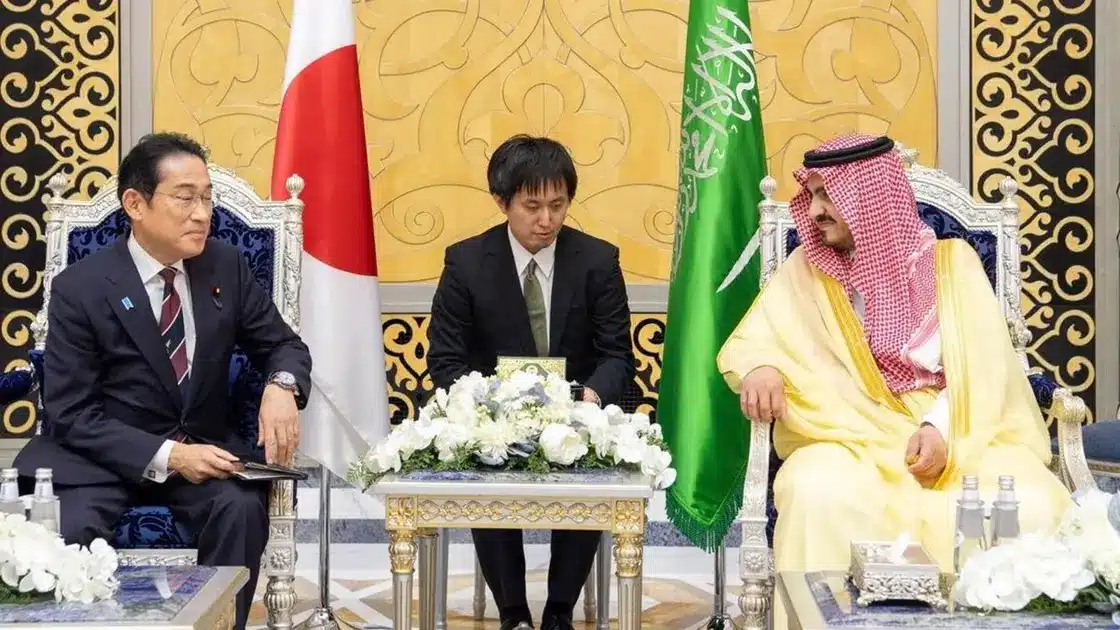Saudi Arabia, the globe’s top oil exporter, has confirmed ongoing cooperation with Japan in sectors such as crude exports and clean hydrogen, according to statements made by the Saudi energy minister.
Prince Abdulaziz bin Salman declared that Saudi Arabia, providing 40% of Japan’s oil imports, will ensure the stability of supplies to the energy-hungry Asian nation, as per a report from the official Saudi Press Agency this Sunday.
Prince Abdulaziz further stressed the importance of mutual cooperation in the field of clean hydrogen and its applications, as well as development of infrastructure for “circular carbon economy” applications.
Recently, Japan, the fourth-largest crude importer worldwide, and OPEC agreed to instigate a dialogue among top officials to address Tokyo’s energy security apprehensions.
Seeking to reinforce its energy security, Japan has turned to long-term liquefied natural gas agreements and increased integration of renewable resources into its overall energy mix.
As China’s economy recovers and Europe accumulates more natural gas before next winter, global competition for LNG cargo is set to escalate. Last December, Japan’s largest oil and gas exploration company, Inpex, signed a supply agreement with US-based Venture Global LNG for a million tonnes annually over the next two decades.
In the previous year, Saudi Arabia and Japan endorsed new agreements concentrating on the circular carbon economy and carbon recycling fields, along with other areas such as green hydrogen, fuel ammonia, and derivatives.
The Saudi energy minister confirmed that the kingdom’s energy sector purchases from Japan reached nearly 12 billion Saudi riyals ($3.2 billion) in the past five years.
The minister also suggested abundant opportunities for cooperation between the two countries in the petrochemicals sector.
Last April, a low-carbon ammonia shipment from Saudi Arabia, independently certified, arrived in Japan for use in power generation. The ammonia, produced by Sabic Agri-Nutrients using feedstock from Saudi Aramco, the top crude exporter, represented a “milestone” in clean energy solutions, and was the result of effective cooperation between entities in Saudi Arabia and Japan, Prince Abdulaziz highlighted.
Ammonia, a nitrogen and hydrogen compound, can serve as a low-carbon fuel across industrial applications, including transport, power generation, and industries such as steel, cement, and fertiliser production.
Power plants could potentially utilise 100 million tonnes of low-carbon ammonia as feedstock by 2050, as per Wood Mackenzie. Aramco intends to produce up to 11 million tonnes of blue ammonia per year by 2030, while currently working on developing carbon capture and hydrogen capabilities.
This past Sunday, Saudi Arabia and Japan bolstered their strong trade ties by exchanging 26 pre-signed economic agreements at the Ritz Carlton hotel in Jeddah. The agreements spanned healthcare, clean energy, mining, and digital innovation sectors.
This exchange marked the evolving bilateral relationship, led by Japanese Prime Minister Fumio Kishida, who arrived in Jeddah last Saturday to endorse Japan’s major local companies and discover more opportunities for collaboration with the kingdom.
Saudi Investment Minister Khalid Al-Falih hailed the Japanese delegation to the kingdom, calling for a mutually beneficial economic partnership.
Al-Falih highlighted that the kingdom’s GDP had grown remarkably since the launch of the Saudi Vision 2030 seven years prior.
“Our GDP is now 66% higher than when we launched Vision 2030. Our foreign direct investment has also increased significantly by 120%,” he stated.
The Japanese delegation’s visit is part of their tour in the Middle East by the Japanese government’s Economic Partnership Mission to strengthen Japan’s economic ties with the region’s countries.
Image Credit: The official Saudi Press Agency



















